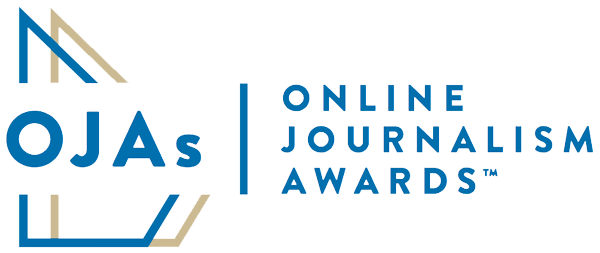




Organization
The Appeal
Award
Excellence in Social Justice Reporting, Portfolio
Program
2022
Entry Links
Link 1
Link 2
Link 3
Link 4
Link 5
Nearly half of all American adults have had an immediate family member incarcerated. On any given day, more than 2 million people, disproportionately Black and brown people, are detained in U.S. jails and prisons. If these individuals lived in the same geographic area, they would form one of America’s top five largest cities. Yet too often the voices of those most impacted by mass incarceration are missing from coverage of jails and prisons.
The Appeal, a nonprofit news organization dedicated to exposing how the U.S. criminal legal system fails to keep people safe, took a dramatically different path after its 2021 relaunch. In reporting on the U.S. prison system and its systemic inequities, we chose to center the marginalized and underrepresented voices of the people affected most by our country’s over-reliance on incarceration – not just by interviewing incarcerated people, but by directly partnering with incarcerated writers who know and understand the failures of the American prison system to tell their own stories.
‘Prison Dispatches from Incarcerated Writers’ is a series of six articles published over as many months written by four incarcerated men and one incarcerated trans woman. It gives readers a truly behind-the-bars look at how the COVID-19 pandemic and rampant misinformation have directly impacted incarcerated people as well as how the system’s punitive measures affect everything from leaving prison to buying a home.
The Appeal’s freelance contributor Chris Blackwell exposed how difficult it is to purchase a home with loved ones in a system that has long been exclusionary and racist. There are ordinary obstacles, such as Blackwell’s inability to get a notarized signature, but also institutional issues: government-backed mortgages like FHA loans, popular with first-time homebuyers, are largely unavailable to incarcerated individuals because of their status and credit history, forcing their loved ones to take on even greater financial burdens.
And at a moment of intense transphobia, Jessica Phoenix Sylvia bravely reflected what being a trans woman inside a men’s prison is really like. She also shared her concerns and fears about navigating an outside world that looks very different than the one she knew 18 years ago.
We uncovered hopeful stories, too. Patrick Stephens, who was then incarcerated in New York state, shared, for the first time, how a health education program developed for the HIV/AIDS epidemic taught him the skills to educate both incarcerated people and correction officers against dangerous COVID-19 misinformation proliferating in prisons and encourage them get vaccinated.
Many of these stories came through a relationship with Empowerment Avenue, a collective committed to supporting and fairly paying incarcerated writers.
We are proud to nominate this diverse and unique project. As Blackwell and fellow incarcerated writer Nick Hacheney wrote for The Appeal, “Many incarcerated people are eager to exercise that right [to free speech] and contribute to the conversations in our communities around racial inequality, criminal justice reform, conditions of confinement, and numerous other issues. After all, who better to comment on the issues that affect us—and our loved ones—than us?”
The Online Journalism Awards™ (OJAs), launched in May 2000, are the only comprehensive set of journalism prizes honoring excellence in digital journalism around the world.
